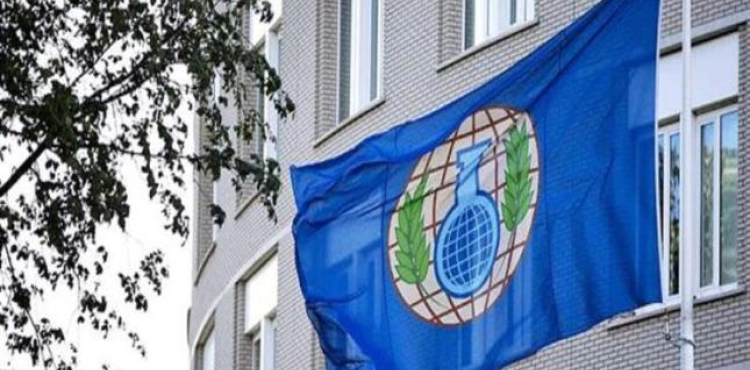The Organization for the Prohibition of Chemical Weapons (OPCW) will begin its annual meetings on Monday, likely to see a new confrontation between Russia and Western powers, during which investigators are likely to uncover for the first time those responsible for chemical attacks in Syria.
The first report of the team of investigators to identify the alleged perpetrators of the attacks in Syria early next year is expected, a possibility that mainly raises tensions among member states of the Hague-based organization.
During this basic meeting, which runs from Monday to Friday, Moscow threatens to block voting on the organization´s budget for 2020 if it includes funding for the team of investigators.
Obstructing the adoption of the budget could cause serious problems for the organization, although the United States, France and Britain believe it has sufficient support for a broad majority.
Concerted efforts by Russia, Iran and China to try to prevent the adoption of the budget failed last year and passed the budget by 99 votes to 27. Western diplomats hope for a larger majority this year to confirm international support for the Organization for the Prohibition of Chemical Weapons.
Most of the 193 member states of the organization in June 2018 voted in favor of strengthening the organization´s powers by allowing it to determine who was responsible for carrying out a chemical attack and not merely documenting the use of a chemical weapon, despite strong objections from Syria and its allies.
At the time, Russia likened the 2013 Nobel Peace Prize-winning organization to the Titanic in drowning, accusing it of over-politicizing its work.
According to many diplomats, the investigators´ report should be issued in February or March. "Everyone is waiting for the results of the investigation team," a diplomat told AFP on condition of anonymity.
Russia has consistently questioned the reality of chemical attacks in Syria and rejected the WHO report that chlorine was used in an attack on the city of Douma in eastern Ghouta near Damascus in April 2018 that killed 40 people, accusing White Helmets paramedics of preparing the video of the attack.
Despite these disagreements, major powers may agree at the meeting to add Novichok nerve gas to the organization´s list of banned substances.
Novichuk is a nerve-poisonous military gas developed by the Soviet Union during the Cold War and was used in March 2018 to poison former Russian double agent Sergei Scribal and his daughter Yulia in Salisbury, southwest England.
London has accused Moscow of being behind the attack in response to Scribal´s cooperation with British intelligence, while Russia has denied any involvement.
The Executive Council of the Organization for the Prohibition of Chemical Weapons (OPCW) decided in January to add two groups of highly toxic chemicals, one of which is Novichok, to the list of substances banned under the Chemical Weapons Convention.
In return, Russia is demanding the addition of other chemicals that Western countries accuse of testing on the list.
Diplomats said a settlement of the thorny issue was on the horizon.












